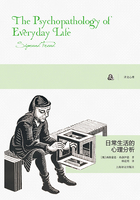Falbe clicked with his tongue "Lucky fellow," he said. "How I wish I was. But I've got to get back again after my week. You'll spend the mornings in the galleries, and the afternoons and evenings at the opera. O Lord, Munich!"He came across from the other side of the carriage and sat next Michael, putting his feet up on the seat opposite.
"Talk of Munich," he said. "I was born in Munich, and I happen to know that it's the heavenly Jerusalem, neither more nor less.""Well, the heavenly Jerusalem is practically next door to Baireuth," said Michael.
"I know; but it can't be managed. However, there's a week of unalloyed bliss between me now and the desolation of London in August. What is so maddening is to think of all the people who could go to Munich and don't."Michael held debate within himself. He felt that he ought to tell his new acquaintance that he knew who he was, that, however trivial their conversation might be, it somehow resembled eavesdropping to talk to a chance fellow-passenger as if he were a complete stranger. But it required again a certain effort to make the announcement.
"I think I had better tell you," he said at length, "that I know you, that I've listened to you at least, at your sister's recital a few days ago."Falbe turned to him with the friendliest pleasure.
"Ah! were you there?" he asked. "I hope you listened to her, then, not to me. She sang well, didn't she?""But divinely. At the same time I did listen to you, especially in the French songs. There was less song, you know."Falbe laughed.
"And more accompaniment!" he said. "Perhaps you play?"Michael was seized with a fit of shyness at the idea of talking to Falbe about himself.
"Oh, I just strum," he said.
Throughout the journey their acquaintanceship ripened; and casually, in dropped remarks, the two began to learn something about each other. Falbe's command of English, as well as his sister's, which was so complete that it was impossible to believe that a foreigner was speaking, was explained, for it came out that his mother was English, and that from infancy they had spoken German and English indiscriminately. His father, who had died some dozen years before, had been a singer of some note in his native land, but was distinguished more for his teaching than his practice, and it was he who had taught his daughter. Hermann Falbe himself had always intended to be a pianist, but the poverty in which they were left at his father's death had obliged him to give lessons rather than devote himself to his own career; but now at the age of thirty he found himself within sight of the competence that would allow him to cut down his pupils, and begin to be a pupil again himself.
His sister, moreover, for whom he had slaved for years in order that she might continue her own singing education unchecked, was now more than able, especially after these last three months in London, where she had suddenly leaped into eminence, to support herself and contributed to the expenses of their common home. But there was still, so Michael gathered, no great superabundance of money, and he guessed that Falbe's inability to go to Munich was due to the question of expense.
All this came out by inference and allusion rather than by direct information, while Michael, naturally reticent and feeling that his own uneventful affairs could have no interest for anybody, was less communicative. And, indeed, while shunning the appearance of inquisitiveness, he was far too eager to get hold of his new acquaintance to think of volunteering much himself. Here to him was this citizen of the new country who all his life had lived in the palace of art, and that in no dilettante fashion, but with set aim and serious purpose. And Falbe abounded in such topics; he knew the singers and the musicians of the world, and, which was much more than that, he was himself of them; humble, no doubt, in circumstances and achievement as yet, but clearly to Michael of the blood royal of artistry. That was the essential thing about him as regards his relations with his fellow-traveller, though, when next morning the spires of Cologne and the swift river of his Fatherland came into sight, he burst out into a sort of rhapsody of patriotism that mockingly covered a great sincerity.
"Ah! beloved land!" he cried. "Soil of heaven and of divine harmony! Hail to thee! Hail to thee! Rhine, Rhine deep and true and steadfast. . . ." And he waved his hat and sang the greeting of Brunnhilde. Then he turned laughingly to Michael.
"I am sufficiently English to know how ridiculous that must seem to you," he said, "for I love England also, and the passengers on the boat would merely think me mad if I apostrophised the cliffs of Dover and the mud of the English roads. But here I am a German again, and I would willingly kiss the soil. You English--we English, I may say, for I am as much English as German--I believe have got the same feeling somewhere in our hearts, but we lock it up and hide it away. Pray God I shall never have to choose to which nation I belong, though for that matter there in no choice in it at all, for I am certainly a German subject. Guten Tag, Koln;let us instantly have our coffee. There is no coffee like German coffee, though the French coffee is undeniably pleasanter to the mere superficial palate. But it doesn't touch the heart, as everything German touches my heart when I come back to the Fatherland."He chattered on in tremendous high spirits.
"And to think that to-night we shall sleep in true German beds," he said. "I allow that the duvet is not so convenient as blankets, and that there is a watershed always up the middle of your bed, so that during the night your person descends to one side while the duvet rolls down the other; but it is German, which makes up for any trifling inconvenience. Baireuth, too; perhaps it will strike you as a dull and stinking little town, and so I dare say it is.















